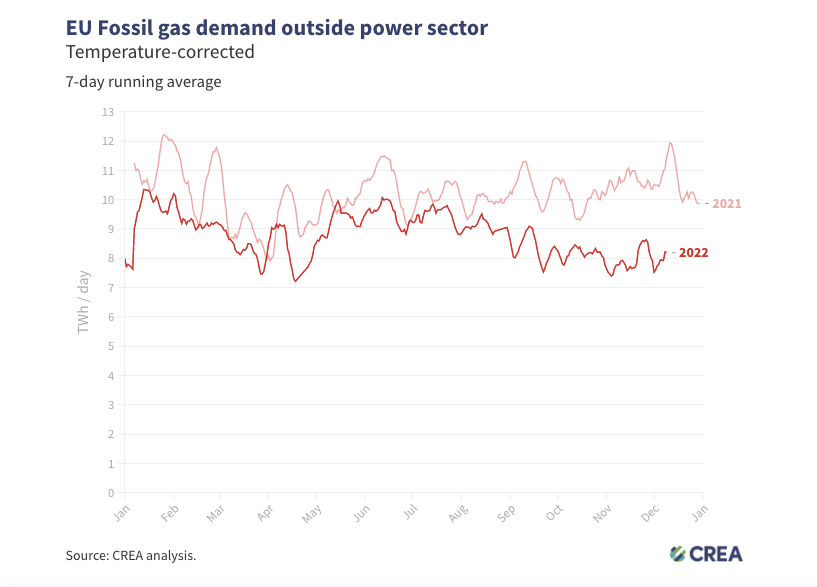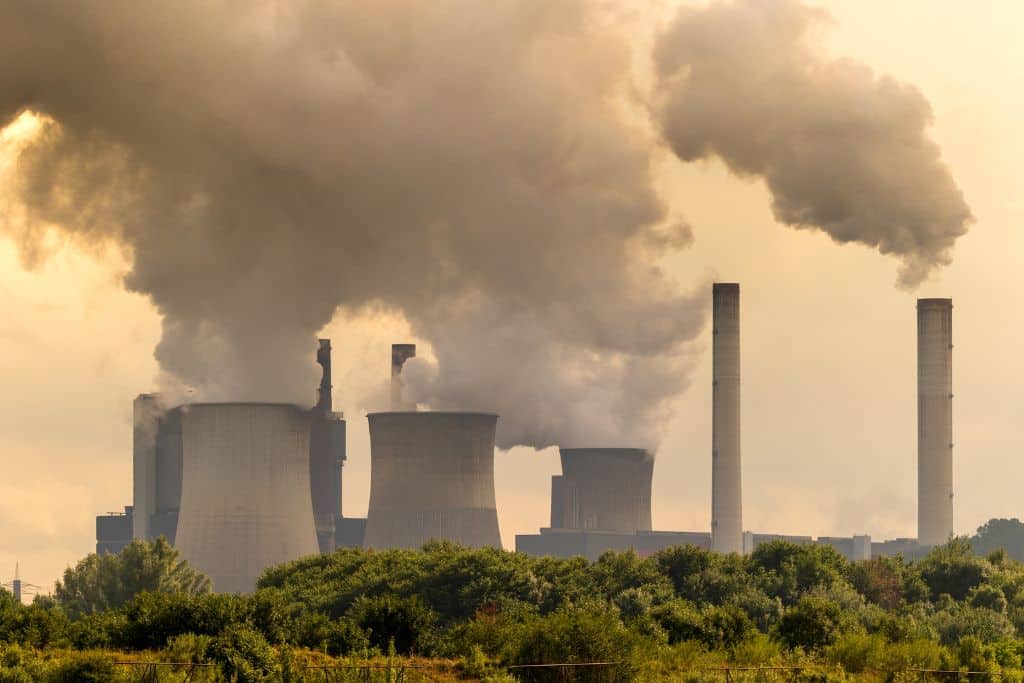Despite some countries going back to coal amid the Ukraine war, a recent analysis showed that EU emissions for November were at their lowest in at least 30 years.
—
EU emissions – including total CO2 emissions, gas consumption, carbon from the power sector, and power generation from fossil fuels – reached their lowest value in at least 30 years this November, according to the Centre for Research on Energy and Clean Air (CREA).
Total CO2 emissions across the EU have been falling since July, owing to a drastic reduction in gas use in industry and buildings.
Despite mild November temperatures contributing to a reduction in gas demand, the main reason for the reduction in EU emissions is attributed to the impact of high prices on demand and electricity consumption as well as an increase in wind and solar power output. Both renewable sources reached new records for the month. Moreover, the 2022 State of the Energy Union report published in October found that 19 of the bloc’s 27 member states have achieved record wind and solar power generation since March of this year.

Fossil gas demand in the EU has decreased in 2022. Source: CREA
Meanwhile, France and Germany, two of the bloc’s main nuclear players, saw a dramatic reduction in nuclear output this year, which experts attribute to the rise in wind and solar power generation.
Despite not experiencing an increase in clean energy production, countries including the Czech Republic, Poland, Finland, Sweden, and the Netherlands still saw a reduction in fossil power generation.
The new statistics show that concerns about the EU regressing on its climate commitments because of the fossil fuel crisis sparked by the war in Ukraine are unfounded. “There has been a very widespread perception that Europe is going backwards on climate change, because of the Ukraine war,” said Lauri Myllyvirta, a lead analyst and author of the report. “There were frequent remarks to that effect at Cop27, saying Europe was going back to coal. We are showing that has not been the case – there was a misreading of coal consumption.”
You might also like: Wind and Solar Power Production in EU Hits Record Amid Energy Crisis




















